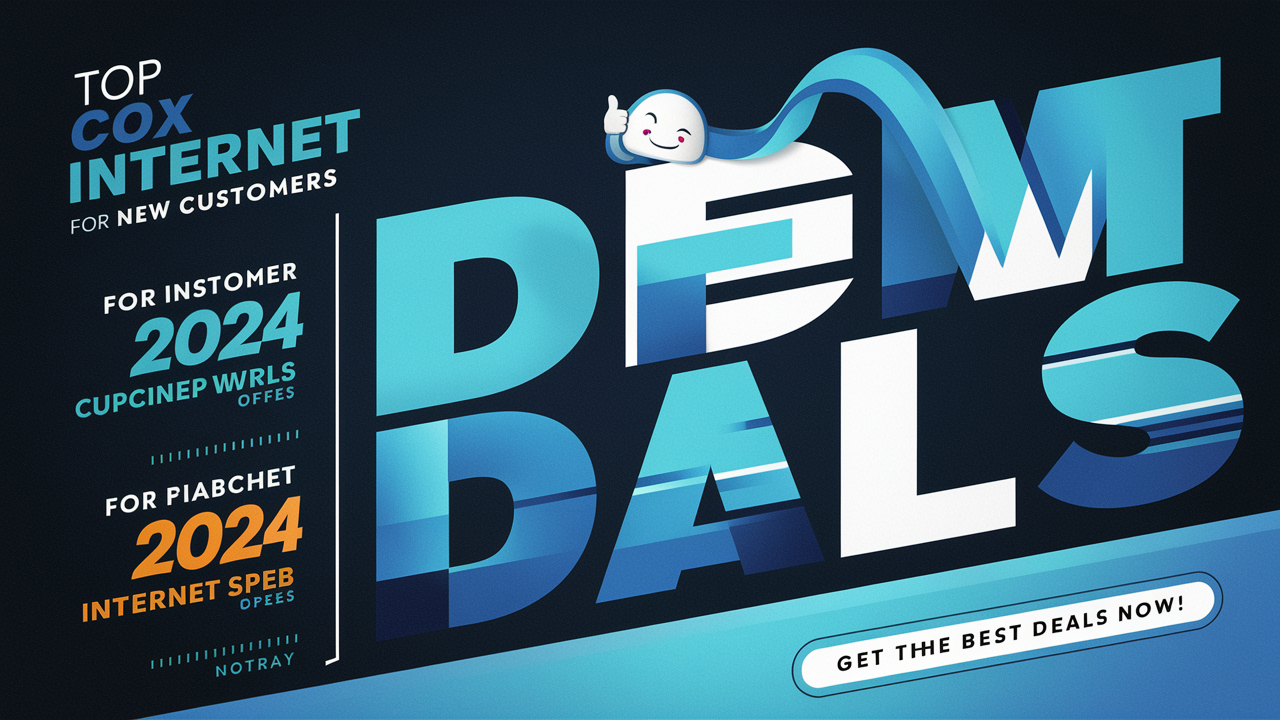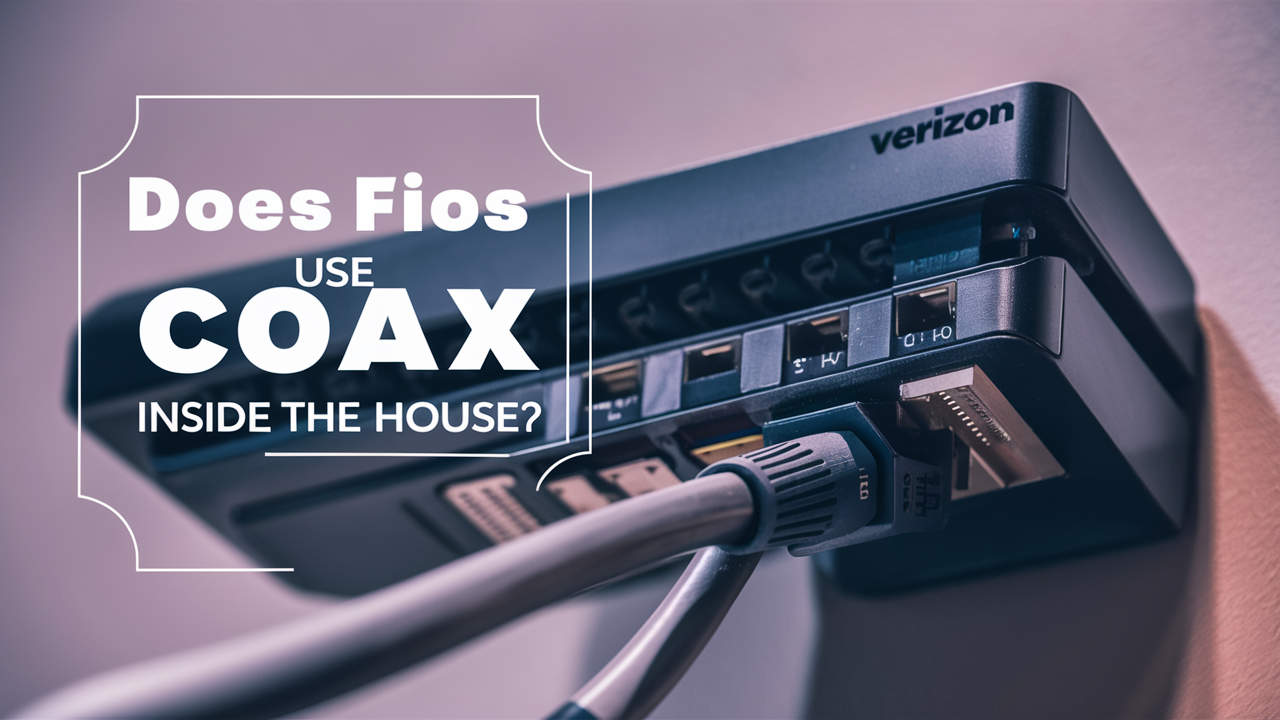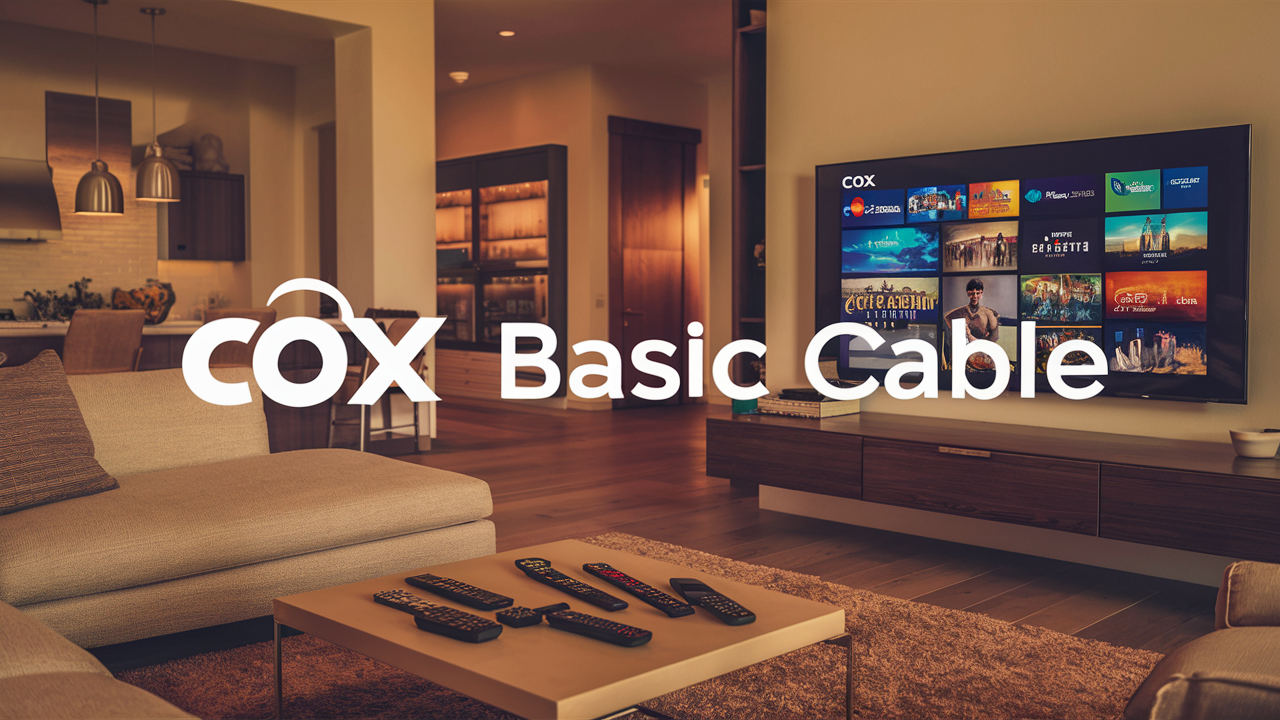What Happens if I go over my Internet Usage with Cox?

Navigating internet usage limits can be a concern for Cox customers. This guide comprehensively explains what happens when you exceed your data cap, detailing potential fees, throttling, and strategies to avoid these issues, ensuring you stay connected without unexpected charges.
Understanding Cox Data Limits
Cox Communications, like many internet service providers (ISPs), often implements data usage policies for its residential internet plans. These policies are designed to manage network traffic and ensure a consistent experience for all users. While not all Cox plans have strict data caps, many do, particularly those in specific regions or at certain speed tiers. Understanding your plan's data allowance is the first crucial step in avoiding unexpected consequences.
What is a Data Cap?
A data cap, or data allowance, is the maximum amount of data (measured in gigabytes, GB, or terabytes, TB) you can download and upload within a billing cycle (typically a month) before incurring additional charges or experiencing service limitations. For instance, a common data allowance might be 1.25 TB per month.
Why Do ISPs Implement Data Caps?
The primary reasons for data caps include:
- Network Management: High-demand users can consume a disproportionate amount of bandwidth, potentially slowing down the network for others. Caps help distribute bandwidth more evenly.
- Infrastructure Costs: Maintaining and upgrading network infrastructure is expensive. Data caps can help offset these costs by encouraging more efficient usage.
- Fair Usage: It’s seen as a way to ensure that heavy users contribute more to the system's costs, aligning with a "pay for what you use" model.
Identifying Your Cox Data Allowance
The most reliable way to determine your specific data allowance is to:
- Check Your Cox Account Online: Log in to your Cox account portal. Your plan details, including data limits, are usually listed in the "My Services" or "Plan Details" section.
- Review Your Bill: Your monthly Cox bill will often state your data allowance.
- Contact Cox Customer Support: If you cannot find the information online or on your bill, a quick call to Cox customer service will provide clarity.
It's important to note that Cox's data policies can vary by region. Some areas may have unlimited data included, while others have specific caps. Always verify your individual plan details.
What Happens When You Exceed Your Cox Data Allowance?
When you go over your allocated data limit with Cox, the consequences typically fall into two main categories: incurring overage charges or experiencing data throttling. The specific outcome depends on your plan and Cox's current policies in your service area. It's essential to understand both possibilities.
The Two Primary Outcomes
- Overage Charges: Cox may charge you extra fees for the data you consume beyond your allowance.
- Data Throttling: Cox may reduce your internet speed for the remainder of the billing cycle once you hit a certain usage threshold, even if there are no direct monetary charges.
In some cases, a combination of both might occur, or Cox might offer a grace period before implementing penalties. However, assuming the most common scenarios, you'll likely face one or both of the above.
The "Soft Cap" vs. "Hard Cap" Distinction
While Cox doesn't always explicitly use these terms, understanding the concept is helpful. A "soft cap" often implies that exceeding the limit might lead to throttling or a warning, with potential charges. A "hard cap" would mean your service is cut off entirely until the next billing cycle, which is less common for residential plans but exists in some contexts.
When Do These Penalties Apply?
Penalties are typically applied at the end of your monthly billing cycle. Once your usage meter shows you have surpassed your data allowance, Cox's system will flag your account. The exact moment the penalty is enforced can vary, but it's generally tied to the completion of the billing period.
The Importance of Proactive Monitoring
Because the consequences can be significant, it's vital to actively monitor your data consumption. Ignoring your usage can lead to surprise bills or frustratingly slow internet speeds when you need them most.
Cox Data Overage Charges and Fees
One of the most direct consequences of exceeding your Cox data limit is the imposition of overage charges. These fees are designed to recoup the costs associated with providing additional bandwidth to users who consume more than their allocated share.
Typical Overage Fee Structure (as of 2025)
Cox's overage charges are generally structured on a per-gigabyte basis. While exact figures can fluctuate and may vary by region or specific promotional offers, a common model has been:
- Fee per GB: A set amount charged for every gigabyte of data used over the allowance. For example, this could be $10 per 50 GB block, or a similar tiered structure.
Important Note: Cox has historically offered "unlimited data" as an add-on or included in higher-tier plans. If you have an unlimited data plan, you will not incur these overage charges. Always confirm your plan's specifics.
How Overage Charges are Applied
When you exceed your data allowance, Cox will typically track the additional data consumed. These charges are then added to your next monthly bill. It's not uncommon for these charges to accumulate quickly if you have a period of exceptionally high usage.
Example of Potential Overage Costs
Let's assume a hypothetical plan with a 1.25 TB (1250 GB) data limit and an overage charge of $10 per 50 GB block. If you use 1.5 TB (1500 GB) in a billing cycle:
- Data Used Over Allowance: 1500 GB - 1250 GB = 250 GB
- Number of 50 GB Blocks: 250 GB / 50 GB = 5 blocks
- Total Overage Charge: 5 blocks * $10/block = $50
This $50 would be added to your next Cox bill. If your usage continues to exceed the limit, these charges can become substantial.
Potential for Unlimited Data Add-ons
To mitigate the risk of overage charges, Cox often provides options to purchase unlimited data for a fixed monthly fee. This can be a more cost-effective solution for heavy internet users than risking unpredictable overage costs. We will discuss these options in more detail later.
What to Do if You Disagree with Charges
If you believe there's an error in your data usage tracking or the overage charges applied, the first step is to contact Cox customer support. They can review your account, explain the charges, and potentially offer a one-time courtesy credit if there's a genuine misunderstanding or a rare system error.
Understanding Data Throttling with Cox
Beyond monetary penalties, Cox may resort to data throttling as a consequence of exceeding your data allowance. Throttling is the intentional slowing down of your internet connection speed by the ISP. This is a less direct but often more frustrating penalty for users.
What is Data Throttling?
Data throttling means that after you've used a certain amount of data, Cox will reduce the maximum speed at which you can download and upload information. This reduction can significantly impact activities like streaming video, online gaming, large file downloads, and even basic web browsing.
When Does Throttling Occur?
Throttling typically kicks in once you have exceeded your monthly data allowance. Some ISPs might also implement throttling during periods of extreme network congestion, regardless of your individual data usage, as a form of general network management. However, for data cap overages, it's usually triggered by surpassing your plan's limit.
Impact of Throttling on Internet Activities
The experience of throttled internet can vary, but common effects include:
- Buffering: Streaming services (Netflix, YouTube, Hulu) will frequently pause to buffer content, leading to a choppy viewing experience.
- Lower Video Quality: Streaming quality might automatically drop to standard definition (SD) or even lower, making content appear pixelated.
- Slow Downloads: Large files will take significantly longer to download.
- Lag in Online Gaming: High latency (ping) will make real-time online games unplayable.
- Delayed Web Page Loading: Websites, especially those with many images or videos, will take longer to load.
- Difficulty with Video Calls: Services like Zoom or FaceTime may experience dropped connections or poor audio/video quality.
Is Throttling Permanent?
Typically, data throttling due to exceeding a data cap is temporary. Your internet speed should return to its normal, advertised speeds once your new billing cycle begins and your data allowance resets. However, if your plan has specific limitations that are not tied to a monthly cap but rather to a "fair usage policy," throttling could be more persistent.
Cox's Policy on Throttling
Cox's specific throttling policies can be complex and may change. Historically, they have stated that they do not throttle speeds based on content or application type, but rather on overall data usage or network congestion. If you are experiencing unexpectedly slow speeds, it's crucial to first check if you have exceeded your data allowance. If not, then other factors like modem issues, Wi-Fi interference, or general network congestion in your area might be the cause.
How to Tell if You're Being Throttled
The most straightforward way to suspect throttling is if your internet speed drops dramatically after a period of high usage, especially if you know you've exceeded your data limit. You can also run speed tests at different times and compare the results. A significant, consistent drop in speed after hitting your data threshold is a strong indicator of throttling.
How to Monitor Your Cox Internet Usage
Proactive monitoring of your Cox internet data usage is the most effective way to avoid unexpected overage charges and the frustration of data throttling. Fortunately, Cox provides several tools and methods to help you keep track of your consumption.
The Cox App and Website Portal
Cox's primary method for users to monitor their data is through their online account portal and the dedicated Cox app. Here's how to use them:
- Login to Your Account: Visit the Cox website (cox.com) and log in using your username and password.
- Navigate to Usage Details: Look for sections like "My Services," "Internet Usage," or "Data Usage." This area will typically display your current billing cycle's data consumption, your total allowance, and how much data you have remaining.
- Cox App: Download the Cox app on your smartphone or tablet. After logging in, you should find a similar data usage dashboard within the app's interface.
These platforms are usually updated in near real-time, providing you with the most current information on your data usage.
Understanding the Data Meter
The data meter provided by Cox will show:
- Current Usage: The total amount of data (in GB or TB) you have consumed so far in the current billing cycle.
- Data Allowance: The maximum amount of data your plan permits for the billing cycle.
- Remaining Data: The difference between your allowance and your current usage.
- Percentage Used: A visual representation of how close you are to reaching your limit.
Setting Up Usage Alerts
A highly recommended feature is setting up usage alerts. Cox allows you to configure notifications that will be sent to you via email or text message when you reach certain thresholds of your data allowance. Common alert points include:
- 75% of Data Allowance: This gives you a significant heads-up that you're approaching your limit.
- 90% of Data Allowance: A more urgent warning.
- 100% of Data Allowance: Notification that you have reached your limit and penalties may apply.
Ensure your contact information is up-to-date in your Cox account to receive these alerts promptly.
Third-Party Monitoring Tools
While Cox's tools are the most direct, some users prefer third-party applications that can monitor data usage across all devices on their network. These tools often require access to your router's settings or can be installed on individual devices. However, they may not always perfectly align with Cox's measurement, so they should be used as a supplementary tool rather than a primary source.
Importance of Monitoring for All Devices
Remember that your data allowance applies to your entire household's internet usage. This includes data consumed by:
- Smart TVs and streaming devices
- Gaming consoles
- Computers (laptops and desktops)
- Smartphones and tablets
- Smart home devices (thermostats, cameras, speakers)
Each device contributes to your total data consumption, so understanding which activities use the most data is key to effective management.
Strategies to Avoid Exceeding Your Cox Data Limit
Preventing yourself from going over your Cox data limit is far more beneficial than dealing with the consequences. By implementing smart habits and utilizing available tools, you can stay within your allowance and enjoy uninterrupted internet service.
1. Understand Your Data Usage Habits
The first step is to identify which activities consume the most data in your household. Generally, high-bandwidth activities include:
- Streaming Video: Especially in high definition (HD) or 4K.
- Online Gaming: Downloading games and playing online.
- Video Conferencing: For work or personal calls.
- Large File Downloads/Uploads: Software updates, cloud backups, large media files.
- Using Smart Home Devices: Especially those that stream video (e.g., security cameras).
2. Optimize Streaming Habits
- Lower Streaming Quality: If you're not concerned about the highest quality, set your streaming services (Netflix, YouTube, etc.) to a lower resolution (e.g., standard definition instead of HD). This can save significant data.
- Download Content Offline: For services that allow it (like Netflix or Amazon Prime Video), download movies or shows when you're on Wi-Fi (or a different network) to watch later.
- Limit Background Streaming: Ensure devices aren't streaming content in the background when not actively being watched.
3. Manage Device Updates and Downloads
- Schedule Updates: Configure your operating systems and applications to download updates only when connected to Wi-Fi, and ideally during off-peak hours or when you're not actively using the internet heavily.
- Be Mindful of Game Downloads: Modern video games can be tens or even hundreds of gigabytes. Plan these downloads carefully.
4. Utilize Wi-Fi Whenever Possible
This might seem obvious, but it bears repeating: always connect your devices to your home Wi-Fi network instead of using cellular data. This includes smartphones, tablets, and laptops when you are at home.
5. Limit Background Data Usage
- Disable Auto-Play Videos: Many social media platforms and websites auto-play videos. Disabling this feature can save data.
- Check Cloud Sync Settings: Services like Google Drive, Dropbox, and iCloud can sync large amounts of data. Adjust their settings to sync only when on Wi-Fi or to limit the size of synced files.
- Monitor Smart Home Devices: Some smart home devices, particularly security cameras, can consume a surprising amount of data if they are constantly streaming video.
6. Consider a Data-Friendly Router
Some advanced routers offer features that can help manage and monitor data usage more granularly across your network. While not strictly necessary, they can provide additional insights.
7. Explore Cox's Unlimited Data Options
If managing data usage proves too challenging or you simply want peace of mind, upgrading to an unlimited data plan is the most straightforward solution. This eliminates the worry of overages entirely. We'll delve deeper into these options next.
Cox Unlimited Data Plans and Options
For many Cox customers, the most effective strategy to avoid data overage charges and throttling is to opt for an unlimited data plan. Cox offers various ways to achieve unlimited data, either as an included feature of certain plans or as an add-on service.
Unlimited Data as a Plan Feature
In some regions or for specific promotional periods, Cox may offer its higher-tier internet plans with unlimited data included as standard. These plans typically come with faster speeds and may be bundled with other Cox services.
- Check Plan Tiers: When reviewing Cox's internet packages, pay close attention to the data allowance listed. If it says "Unlimited" or "No Data Cap," then you are covered.
- Regional Variations: It's crucial to remember that availability and features of these plans can vary significantly by location. What's offered in one city might not be available in another.
The Unlimited Data Add-On
For customers whose current plan has a data cap, Cox offers an "Unlimited Data" add-on. This is a separate monthly fee that, once added to your account, removes any data usage limits for the duration of your subscription.
- Monthly Fee: The cost of this add-on can vary but is generally a fixed monthly price. As of 2025, this might range from $30 to $50 per month, depending on promotions and your specific plan.
- Benefits: The primary benefit is complete freedom from data worries. You can stream, game, and download without monitoring your usage or fearing overage charges.
- Cost-Effectiveness: For households with high data consumption (e.g., multiple streamers, gamers, remote workers), the cost of the unlimited add-on can be significantly less than the potential overage charges they might otherwise incur.
How to Add Unlimited Data
You can typically add the Unlimited Data option by:
- Logging into your Cox Account: Navigate to the "My Services" or "Plan Upgrades" section.
- Contacting Cox Customer Support: Speak with a representative who can assist you in adding the unlimited data feature to your account.
- Using the Cox App: The mobile app may also provide an option to manage your plan and add features.
When is the Unlimited Data Add-On Worth It?
Consider the unlimited data add-on if:
- You frequently exceed your current data allowance.
- You are consistently worried about hitting your data cap.
- Your household engages in heavy data activities like 4K streaming, extensive online gaming, or large file transfers.
- The cost of the add-on is less than your estimated potential overage charges.
Important Considerations
- "Unlimited" Doesn't Mean Infinite Speed: While the add-on removes data caps, Cox's terms of service usually include a "fair usage policy." This means that in rare cases of extreme, sustained network abuse, speeds *could* be temporarily managed to ensure network stability for all users. However, this is distinct from routine throttling due to exceeding a specific monthly allowance.
- Check Your Contract: Always review the terms and conditions associated with your plan and any add-ons to fully understand what is included.
By understanding these options, you can make an informed decision about whether an unlimited data plan is the right choice for your internet needs with Cox.
Impact of Exceeding Data on Different Cox Plans
The consequences of exceeding your data limit with Cox aren't uniform; they depend heavily on the specific internet plan you subscribe to. Cox offers a range of plans, from basic to high-speed, and their data policies can differ significantly.
Plans with Strict Data Caps
Many of Cox's standard or entry-level internet plans come with a defined monthly data allowance (e.g., 1 TB or 1.25 TB). For these plans, exceeding the limit will most likely result in:
- Overage Charges: As discussed, you'll be charged per gigabyte or per block of data used beyond your allowance.
- Potential Throttling: Depending on the specific plan's terms, exceeding the cap might also trigger a reduction in your internet speed until the next billing cycle.
These plans are often designed for users with moderate internet needs who don't typically stream a lot of high-definition content or download large files frequently.
Plans with Higher Data Allowances
Some of Cox's mid-tier or higher-speed plans might offer a more generous data allowance, such as 1.5 TB or 2 TB. While this provides more breathing room, the principle remains the same:
- Still Subject to Caps: Even with a higher allowance, if you surpass it, you will likely face overage charges and/or throttling.
- Less Frequent Impact: For most users, these higher allowances are sufficient for typical daily activities, making overages less common.
Plans Marketed as "Unlimited"
As previously mentioned, Cox offers plans that are advertised as having unlimited data. These can be:
- Included Unlimited Data: Some premium plans include unlimited data without any additional charge. These are ideal for heavy users.
- Unlimited Data Add-On: Customers on capped plans can purchase an unlimited data add-on for a fixed monthly fee.
For customers on these plans, exceeding a data limit is not a concern, as there are no caps to surpass. This offers the most predictable and stress-free internet experience regarding data usage.
Promotional Plans and Bundles
Cox frequently runs promotions or offers bundled packages (e.g., internet, TV, and phone). These plans might have unique data policies or introductory periods where data caps are waived. It's crucial to:
- Read the Fine Print: Understand the data policy that applies *after* the promotional period ends.
- Verify Included Features: Ensure you know whether unlimited data is a permanent feature or a temporary perk.
Impact on Network Performance
While your individual plan dictates the direct consequences for your account (fees, throttling), exceeding data limits collectively can also impact network performance in your area. If a significant number of users in a neighborhood are consistently exceeding their caps, it can contribute to overall network congestion, potentially leading to slower speeds for everyone, even those within their limits. This is part of why ISPs implement data management policies.
Choosing the Right Plan
When selecting a Cox internet plan, consider your household's typical internet usage. If you're unsure, it's often safer to:
- Start with a plan that includes unlimited data or a very high allowance.
- Use Cox's monitoring tools diligently.
- Be prepared to upgrade or add the unlimited data feature if your usage patterns change.
Understanding your plan is the first step to avoiding any negative repercussions from exceeding your data allowance.
Real-World Scenarios and Examples
To better illustrate what happens when you go over your Cox internet usage, let's look at a few common scenarios. These examples are based on typical Cox plan structures and usage patterns observed in 2025.
Scenario 1: The Streaming Family
The Setup: The Smith family has a Cox internet plan with a 1.25 TB (1250 GB) data limit. They have two teenagers who frequently stream Netflix and YouTube in HD, a parent who works from home and uses video conferencing daily, and a smart TV that streams 4K content in the evenings. They also have a few smart home devices.
Usage Breakdown:
- HD Streaming: Approximately 3-5 GB per hour per device. With two teenagers streaming for 4 hours daily, that's 24-40 GB per day for them alone.
- 4K Streaming: Can consume 7 GB or more per hour. Even 2 hours nightly adds 14 GB.
- Video Conferencing: Can use 1-3 GB per hour. A parent working 6 hours might use 6-18 GB daily.
- General Browsing/Social Media: Adds a few GB per day.
- Smart Home Devices: Can add 1-2 GB per day.
Estimated Monthly Usage: Based on these estimates, their daily usage could easily reach 45-74 GB. Over 30 days, this amounts to 1350 GB to 2220 GB.
The Outcome: The Smith family will almost certainly exceed their 1.25 TB (1250 GB) limit. If their usage is around 1.5 TB (1500 GB), they would be 250 GB over. If Cox charges $10 per 50 GB block, this could mean an extra $50 on their bill. If their usage spikes to 2 TB (2000 GB), they'd be 750 GB over, potentially costing $150 in overages, not to mention the frustration of slower speeds if throttling is also applied.
Recommendation: The Smith family should strongly consider the Unlimited Data add-on or a plan that includes unlimited data. The cost of the add-on would likely be less than their potential overage charges.
Scenario 2: The Light User
The Setup: Sarah lives alone and uses the internet primarily for email, occasional web browsing, and streaming one or two movies per week in standard definition. Her Cox plan has a 1 TB (1000 GB) data limit.
Usage Breakdown:
- Email/Browsing: Minimal, perhaps 0.5 GB per day.
- Standard Definition Streaming: Around 1-3 GB per hour. Watching a 2-hour movie uses 2-6 GB.
- Occasional Downloads: Small files, rarely exceeding 1 GB.
Estimated Monthly Usage: Daily usage: ~0.5 GB. Weekly movie: ~6 GB. Total monthly: (0.5 GB * 30 days) + (6 GB * 4 weeks) = 15 GB + 24 GB = 39 GB.
The Outcome: Sarah's usage is extremely low compared to her 1 TB allowance. She is highly unlikely to ever exceed her data limit. For users like Sarah, a plan with a data cap is perfectly adequate, and she doesn't need to worry about overages or throttling.
Scenario 3: The Gamer and Remote Worker
The Setup: Mark is a freelance graphic designer who works from home, requiring frequent large file uploads and video calls. He also enjoys online gaming and downloads new games regularly. His plan has a 1.25 TB (1250 GB) limit.
Usage Breakdown:
- Large File Uploads: Graphic design projects can be hundreds of megabytes or even gigabytes. Uploading 5-10 GB daily is plausible.
- Video Conferencing: 4-6 hours daily, using 1-3 GB per hour, totaling 4-18 GB daily.
- Online Gaming: Downloading new games (50-100+ GB each) and daily gameplay (can use 1-5 GB per session).
- Streaming: Occasional HD streaming for entertainment.
Estimated Monthly Usage:
- Uploads: 10 GB/day * 30 days = 300 GB
- Video Calls: 10 GB/day * 30 days = 300 GB
- Gaming Downloads/Play: Assume one large game download (100 GB) and 2 hours of play daily (3 GB/day * 30 days = 90 GB). Total for gaming: 190 GB.
- Streaming/Misc: ~50 GB
Total Estimated Usage: 300 + 300 + 190 + 50 = 840 GB.
The Outcome: In this specific breakdown, Mark stays within his 1.25 TB (1250 GB) limit. However, this is a conservative estimate. If he downloads two large games in a month, or has longer video calls, or his design projects are larger, he could easily push his usage to 1.3 TB or 1.4 TB. At 1.4 TB, he'd be 150 GB over, costing an extra $30. If he consistently works with very large files and downloads multiple games, he could reach 1.7 TB or more, leading to significant overage charges.
Recommendation: Mark should monitor his usage closely. If he sees his usage trending towards 1 TB consistently, adding the unlimited data option would be a wise investment to avoid unexpected costs and ensure his work isn't interrupted by throttling.
Tips for Managing Data Usage in 2025
As internet usage continues to evolve with higher resolutions, more connected devices, and increasingly data-intensive applications, managing your data allowance with Cox remains crucial in 2025. Here are some updated tips to help you stay within your limits:
1. Embrace Wi-Fi 6 and Beyond
If you have a modern router supporting Wi-Fi 6 or Wi-Fi 6E, ensure your devices are also compatible. These newer Wi-Fi standards offer improved efficiency and speed, which can indirectly help manage data by making downloads and streaming quicker, potentially reducing the time spent actively consuming data. More importantly, ensure all your devices are connected to your home Wi-Fi and not accidentally using cellular data.
2. Optimize Smart Home Device Data Consumption
Smart home devices are becoming ubiquitous. In 2025, many security cameras offer higher resolution recording, and smart speakers are constantly connected. Review the data usage settings for your smart home devices. For cameras, consider setting recording schedules or motion detection sensitivity to avoid constant streaming. Many devices allow you to adjust video quality settings.
3. Leverage Download Managers and Scheduling
For large downloads (games, software, movies), use download managers that allow you to pause, resume, and schedule downloads. Configure these to run during off-peak hours or when you're not actively using the internet for other demanding tasks. This prevents sudden spikes in usage during critical times.
4. Understand Data Usage by Application
Most modern operating systems (Windows, macOS, iOS, Android) provide detailed breakdowns of data usage by application. Regularly check these reports on your devices to identify any rogue apps or background processes that might be consuming more data than expected. For example, a cloud backup service might be syncing a large volume of photos or videos without your direct awareness.
5. Prioritize Streaming Quality vs. Data
While 4K streaming is impressive, it consumes a massive amount of data. In 2025, many users are finding that HD (1080p) or even full HD (720p) offers a perfectly acceptable viewing experience on smaller screens (laptops, tablets) while saving significant data. Consider adjusting streaming service settings to HD or even a lower quality if you are close to your data limit.
6. Utilize Cox's Data Usage Tools Effectively
Don't just check your Cox data usage occasionally; make it a habit. Set up alerts through the Cox app or website. Aim to check your usage at least once a week, and more frequently as you approach the latter half of your billing cycle. Early detection is key to preventing overages.
7. Consider a Dedicated "Unlimited" Plan
If your data usage consistently hovers near your cap, or if you frequently find yourself worrying about it, the peace of mind offered by an unlimited data plan is invaluable. In 2025, the cost-benefit analysis often favors unlimited plans for moderate to heavy users, as the price of the unlimited add-on is frequently less than the cumulative cost of potential overages.
8. Network Segmentation (Advanced)
For tech-savvy users, consider segmenting your network. You could potentially set up a guest network for less critical devices or use router features to limit bandwidth for certain devices or applications, although this requires advanced configuration and may not always be practical for home users.
9. Be Aware of ISP Policy Changes
Internet service providers, including Cox, may update their data policies, allowances, and fees. Stay informed by periodically checking Cox's official website or your account for any changes that might affect your plan.
By integrating these strategies into your daily internet habits, you can effectively manage your data consumption with Cox in 2025, ensuring a smooth and cost-effective online experience.
Conclusion
Going over your internet usage limit with Cox can lead to unwelcome surprises, primarily in the form of overage charges or frustrating data throttling. Understanding your specific plan's data allowance is paramount. While some Cox plans come with generous caps or are entirely unlimited, many standard plans require careful monitoring. The key to avoiding these penalties lies in proactive management: regularly checking your usage through the Cox app or website, setting up alerts, and adopting data-conscious habits like optimizing streaming quality and managing large downloads. For households with consistently high data demands, investing in Cox's unlimited data add-on or a plan that includes unlimited data is often the most cost-effective and stress-free solution. By staying informed and employing smart strategies, you can ensure your Cox internet service remains reliable and predictable, keeping you connected without unexpected costs or performance issues.





